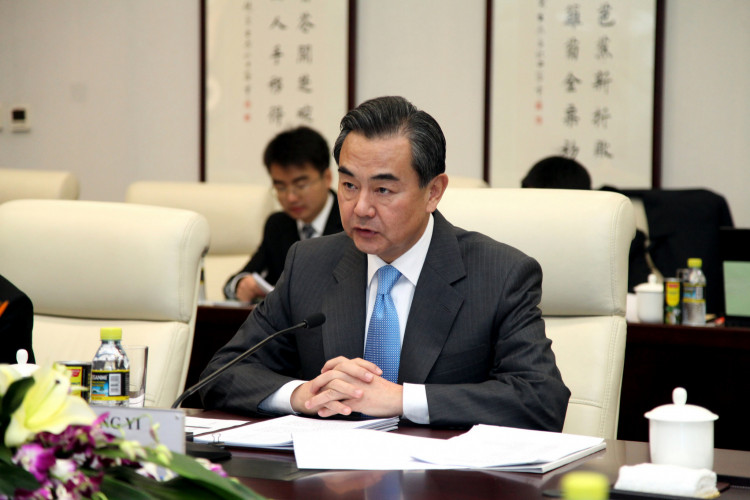Chinese Foreign Minister Wang Yi said the country continues to recognize the "one country, two systems" arrangement bestowed upon Hong Kong after its turn over from Britain in 1997. His statement was made at the sidelines of the UK-China Strategic Dialogue held with U.K.'s new Foreign Secretary Jeremy Hunt on July 30.
Allegations regarding China's infringement of free speech and democracy had been growing amidst reports that Beijing's leaders were oppressing the political opposition in Hong Kong.
On Monday, Minister Wang pledged China's commitment in allowing Hong Kong to maintain its wide autonomy and civil freedom for 50 years. He, however, stressed that the former British colony's affairs are exclusively China's concern.
"We do not welcome nor do we accept other countries to interfere in China's domestic affairs," the Associated Press quoted Wang as saying.
Hong Kong is enjoying the freedom of speech and effective governance for the past years. The semi-autonomy bestowed by China will end in 2047, yet, there had been growing fears about repression this early.
It does not help that President Xi Jinping has been extremely vocal about his mission to realize the China dream of becoming a prosperous and technologically advanced nation. To fulfill this goal, China may require full integration of Hong Kong into the mainland, according to the Financial Times. China may also decide on reunification with Taiwan.
Talks on China's alleged encroachment with Hong Kong's freedom grew louder when the government appointed by Beijing recently banned the Hong Kong National Party on grounds of "national security." Financial Times reported there have been widespread crackdowns where protesters were jailed and oppositions were ousted or prohibited from running for election.
There had been efforts from the international community to open discussions regarding alleged threats to Hong Kong's autonomy. China, however, asserted that issues involving Hong Kong are to be dealt with internally among Chinese officials.
After its turn over from Britain colony in 1997, Hong Kong has been enjoying the freedom of speech and freedom of assembly, which are restricted in China. Hong Kong is the only place under China's rule that is allowed to hold an annual vigil commemorating the Tiananmen Square protests of 1989. Similar activity is banned on the mainland.
Through the years, however, distinct Chinese influence is slowly creeping in Hong Kong. For one, there had been an increase in people who spoke Mandarin even if Cantonese is supposedly the prevalent dialect.
There are more than 1.5 million mainland Chinese who migrated to Hong Kong since 1997, and they now comprised 20 percent of the population according to ABC News. This number is expected to grow as a high-speed rail link connecting Hong Kong to the mainland is currently being constructed. Another bridge linking Hong Kong to Macau and the mainland city of Zhuhai is being built as well.
The supposed encroachment does not sit well particularly with the younger population of Hong Kong. A survey done by the Chinese University of Hong Kong showed that 45 percent of youth aged 18 and 35 years old plan to leave Hong Kong due to fears of looming political tensions.






